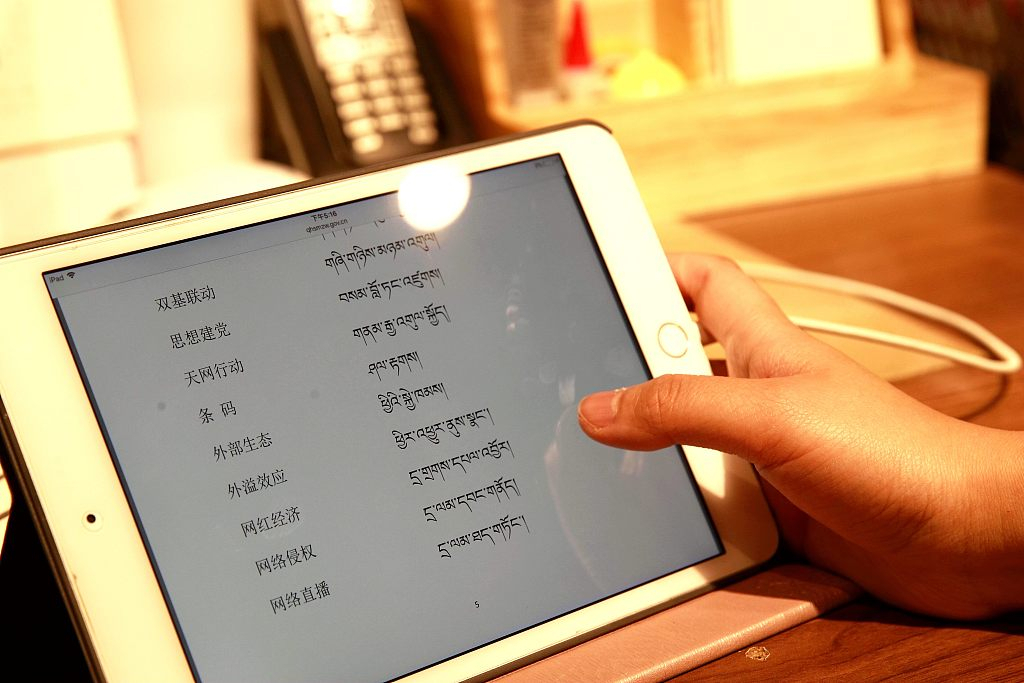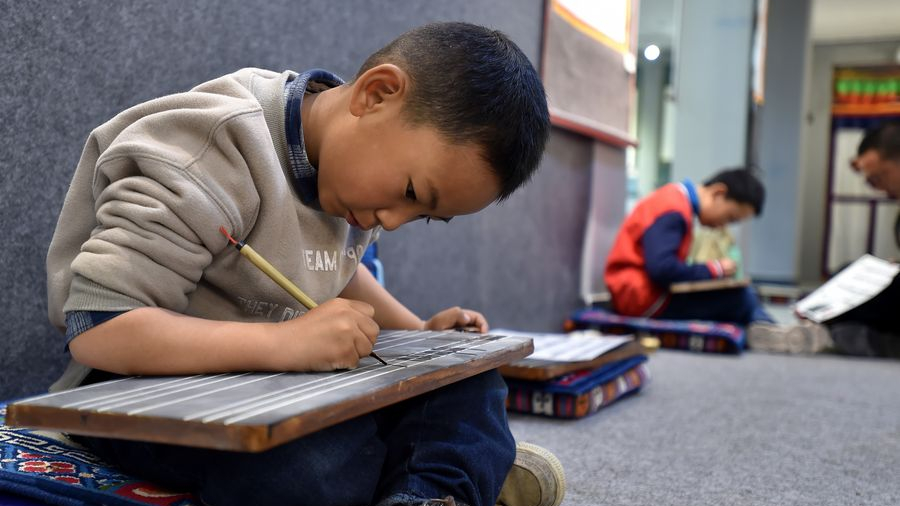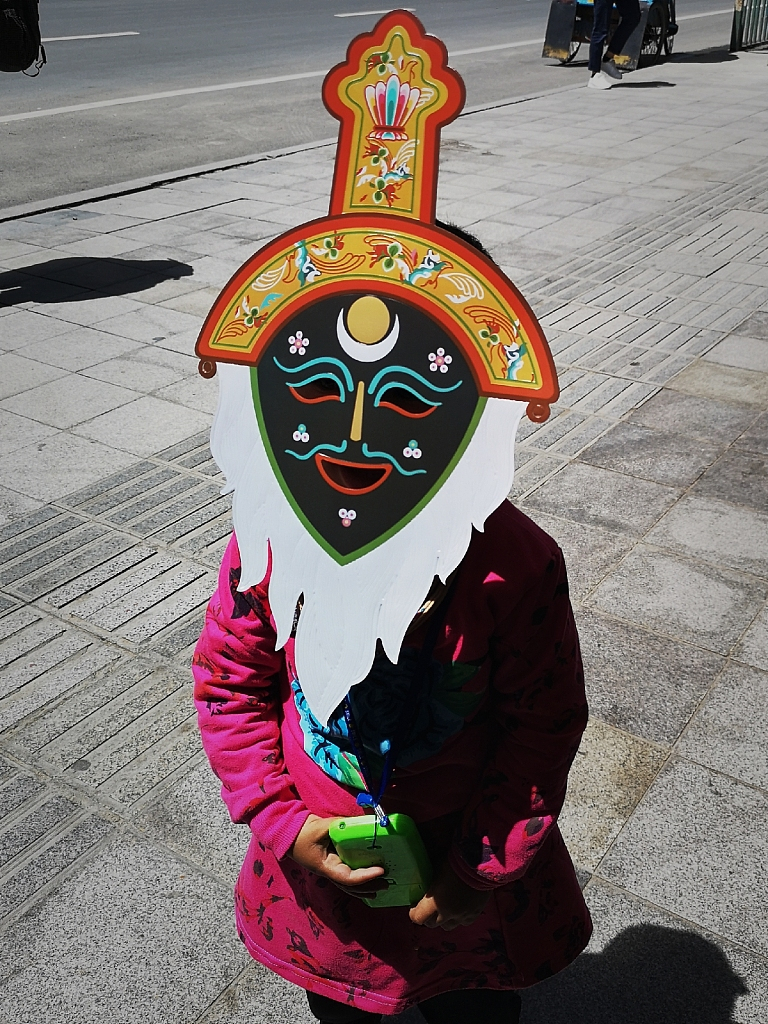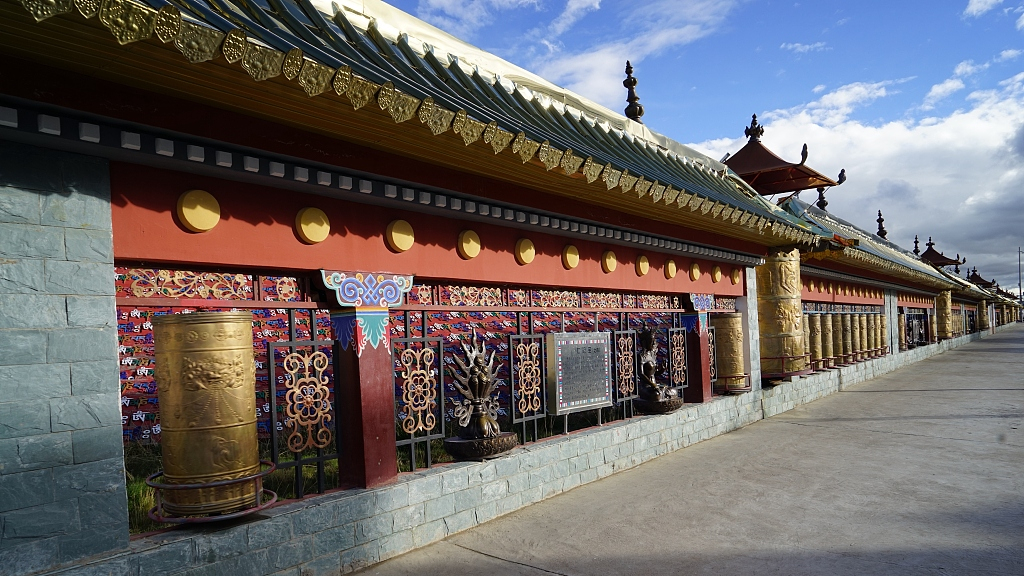
More than 200 Tibetan terms related to the novel coronavirus disease (COVID-19) have recently been added to the Tibetan vocabulary. /VCG
More than 200 Tibetan terms related to the novel coronavirus disease (COVID-19) have recently been added to the Tibetan vocabulary. /VCG
More than 200 Tibetan terms related to the novel coronavirus disease (COVID-19) have recently been added to the Tibetan vocabulary, and introduced to millions of Tibetan people living in southwest China's Tibet Autonomous Region though radio, video, posters, cultural shows, and even traditional dramas.
The newly added terms are Tibetan equivalents of epidemic-related medical terminology, such as COVID-19, nucleic acid-based detection, and infrared thermometer.
They cover seven aspects, including the disease name, the prevention and control of infection, policies and measures, pathological symptoms, and the names of medical equipment, according to Yeshe Sangpo, an official with the regional Tibetan language working committee.

Children practice Tibetan calligraphy at a public art gallery in Lhasa, southwest China's Tibet Autonomous Region, May 3, 2019. /Xinhua
Children practice Tibetan calligraphy at a public art gallery in Lhasa, southwest China's Tibet Autonomous Region, May 3, 2019. /Xinhua
The official believed that these new terms would provide a standard and a foundation for the spreading of anti-epidemic knowledge in Tibet.
Multiple measures have been rolled out in the region to provide virus-related knowledge and updates.
The local government has invited the experts from Tibetan hospitals, disease control centers and other medical departments to take interviews and film 10-episode-plus talk shows so far.
These TV programs are filmed in Tibetan and Mandarin and focus on how to protect people from infection and to prevent the spread of the epidemic, involving a variety of topics, such as exercise, diet and other aspects and activities of daily living.
Health knowledge combined with traditional culture and arts

A child wears a traditional Tibetan Opera mask during the Shoton Festival in Lhasa, Tibet, China, August 12, 2018. /VCG
A child wears a traditional Tibetan Opera mask during the Shoton Festival in Lhasa, Tibet, China, August 12, 2018. /VCG
The region's Traditional Tibetan Opera Troupe has created 12 anti-epidemic shows with rich local cultural characteristics, which are broadcast bilingually online through WeChat and other digital platforms.
Local folklore artists are also taking action by incorporating health knowledge into their popular audio podcasts, which are usually dedicated to the stories of King Gesar, a legendary 11th-century Tibetan demigod king who fought evil and helped the people.
As listening to and chanting the epic of King Gesar is an essential part of Tibetans' daily life, the combination of anti-epidemic knowledge with the stories of the king makes it more accessible to ordinary Tibetans.

A park in memory of the King Gesar is located in Qinghai province, China. /VCG
A park in memory of the King Gesar is located in Qinghai province, China. /VCG
"Such programs are effective in spreading knowledge of epidemic prevention. I've learned some precaution measures through them," said Nyima, a 59-year-old villager in Tibet's Dangxiong County.
The local government lowered the local emergency response from the top level to the second level, which will go into effect on Saturday, while some areas will be managed under the requirements of the third level.
As of Thursday, the autonomous region has reported zero suspected or confirmed cases for 36 consecutive days.